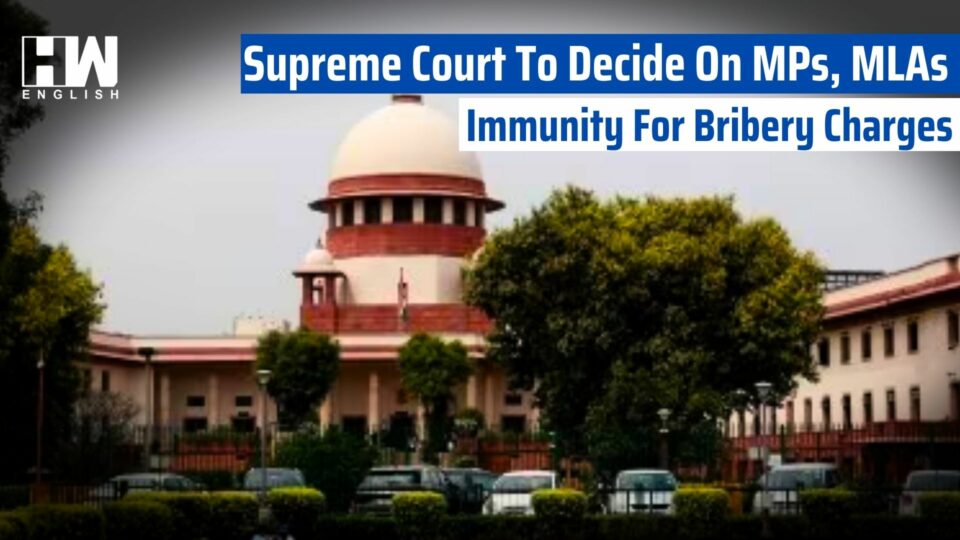The Supreme Court is set to deliver its verdict on whether Members of Parliament (MPs) and Members of Legislative Assemblies (MLAs) are immune from prosecution for accepting bribes in exchange for making speeches or casting votes in the legislature.
Chief Justice DY Chandrachud heads the seven-judge constitution bench that reserved its judgment on October 5, 2023. The Centre argued against immunity, asserting that parliamentary privilege doesn’t exempt lawmakers from the law. The bench, which included the Attorney General and Solicitor General, deliberated for two days, assisted by amicus curiae P S Patwalia.
This case reevaluates a 1998 ruling granting immunity to lawmakers in the JMM bribery scandal. The Supreme Court revisited this judgment 25 years later. During proceedings, the court stated it would assess if immunity extends even when criminality is involved. Notably, the court agreed to reconsider its stance on September 20, 2023, acknowledging the issue’s significant impact on political morality.
ALSO READ: “Calling Unknown Woman ‘Darling’ Is Criminal Offence”: Calcutta HC
In 1998, a five-judge bench ruled in favour of immunity under Article 105(2) and Article 194(2) of the Constitution, a decision echoed in 2019 during an appeal by Sita Soren, a JMM MLA implicated in the same scandal. Sita Soren, like her father-in-law Shibu Soren, sought immunity from prosecution. The High Court had rejected her plea in 2014, leading to the Supreme Court’s intervention.
The JMM bribery case dates back to 1993 when Shibu Soren and four other JMM MPs were accused of accepting bribes to sway a no-confidence vote. Despite the case, the Narasimha Rao government retained power with their support. The Supreme Court dismissed the case against them, citing immunity under Article 105(2).
This verdict will have far-reaching implications for parliamentary ethics and legal accountability. It’s a pivotal moment in redefining the boundaries of legislative privilege and the rule of law.
As an independent media platform, we do not take advertisements from governments and corporate houses. It is you, our readers, who have supported us on our journey to do honest and unbiased journalism. Please contribute, so that we can continue to do the same in future.

